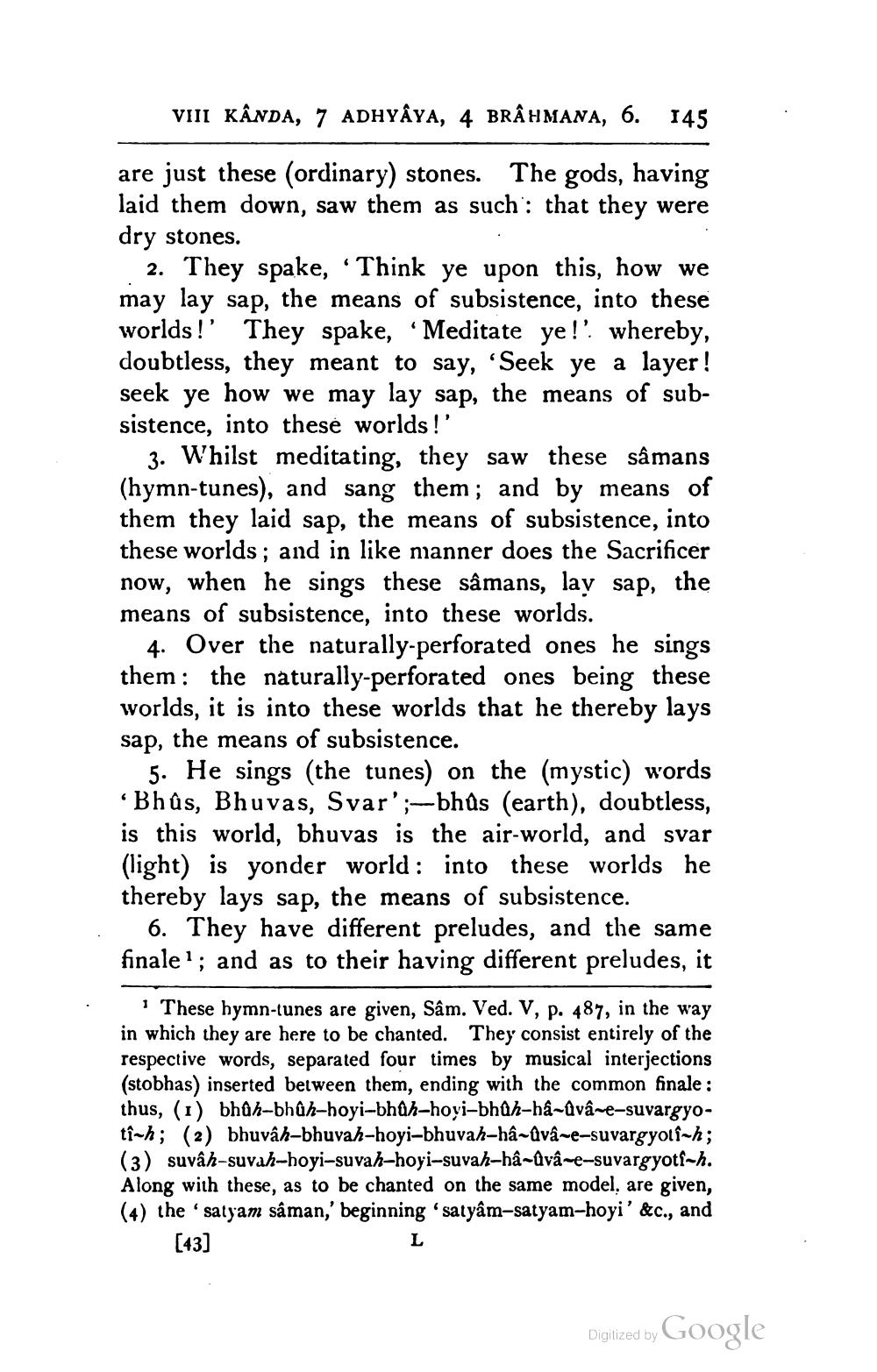________________
VIII KÂNDA, 7 ADHYÂYA, 4 BRÂHMANA, 6.
145
are just these (ordinary) stones. The gods, having laid them down, saw them as such: that they were dry stones.
2. They spake, ‘Think ye upon this, how we may lay sap, the means of subsistence, into these worlds!' They spake, 'Meditate ye!!. whereby, doubtless, they meant to say, 'Seek ye a layer! seek ye how we may lay sap, the means of subsistence, into these worlds!'
3. Whilst meditating, they saw these samans (hymn-tunes), and sang them; and by means of them they laid sap, the means of subsistence, into these worlds; and in like manner does the Sacrificer now, when he sings these sâmans, lay sap, the means of subsistence, into these worlds.
4. Over the naturally-perforated ones he sings them: the naturally-perforated ones being these worlds, it is into these worlds that he thereby lays sap, the means of subsistence.
5. He sings (the tunes) on the (mystic) words Bhûs, Bhuvas, Svar';-bhus (earth), doubtless, is this world, bhuvas is the air-world, and svar (light) is yonder world: into these worlds he thereby lays sap, the means of subsistence.
6. They have different preludes, and the same finale ; and as to their having different preludes, it
These hymn-tunes are given, Sâm. Ved. V, p. 487, in the way in which they are here to be chanted. They consist entirely of the respective words, separated four times by musical interjections (stobhas) inserted between them, ending with the common finale: thus, (1) bhûh-bhûh-hoyi-bhûh-hoyi-bhûh-hå-Uvâ-e-suvargyotî-h; (2) bhuvah-bhuvah-hoyi-bhuvah-ha-ava-e-suvargyoti-h; (3) suvâh-suvah-hoyi-suvah-hoyi-suvah-hâ-üvâ-e-suvargyoti-h. Along with these, as to be chanted on the same model, are given, (4) the 'satyam saman,' beginning satyâm-satyam-hoyi' &c., and
[43]
Digitized by Google




